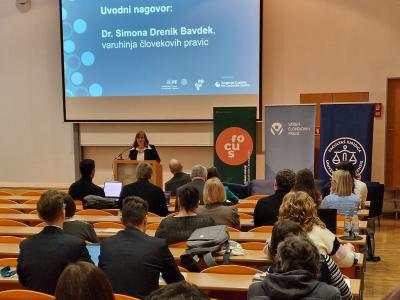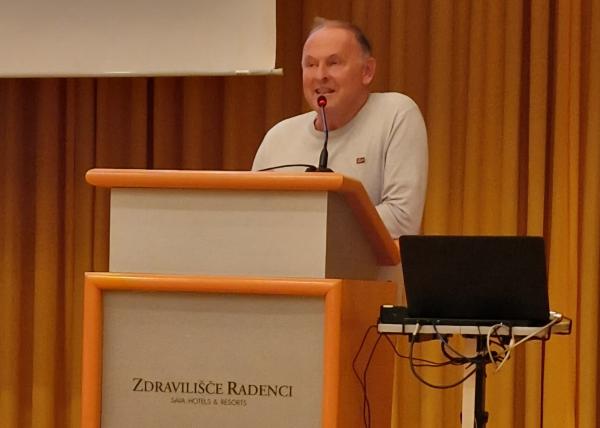Children's advocates at an expert consultation on self-care in light of caring for children
"Self-care is one of the fundamental components of the professional identity of an advocate who works with vulnerable groups of children. This work requires a high level of emotional involvement, empathy, and presence, and at the same time involves dealing with the pain, trauma, and distress of children, which can place a great burden on the advocate. Without conscious investment in one's own well-being, there is a risk of burnout, emotional numbness, or excessive involvement, which directly affects the quality of the relationship with the child and the professionalism of the work," emphasised Deputy Ombudsman Dr Jože Ruparčič in his opening address today, 7 November 2025, at the professional consultation of children's advocates in Radenci.
Experts and advocates will also speak about self-care in the light of caring for children entrusted to them in the advocacy process tomorrow, 8 November 2025. The two-day event at the Radenci Health Resort titled Advocate's Self-Care: In Balance with Yourself for the Good of Children in Advocacy was attended by child advocates from all over Slovenia, who delved into the importance of psychological resilience, mental health, and ethical responsibility when working with vulnerable groups of children. The central part of the programme today was led by Asst. Mark Floyd Bračič, MA in Psychology, who presented in two sets of lectures the importance of self-care as a professional skill and ways in which advocates can recognise and prevent burnout.
The Saturday part of the conference will be dedicated to the practical aspects of work. Long-time advocates Maša Gril and Peter Steničnik will guide participants through interactive exercises and group work to understand stress and stress, and will present effective ways to strengthen inner stability. The programme will also present the practice of advocacy through a case study prepared by advocates Simona Mikec, Manuela Bošnjak, Mirjam Košir, and Nataša Prelesnik Korošic. The case study particularly emphasises the importance of recognising emotional boundaries and the need for professional support in challenging cases.
Today and tomorrow, participants will have the opportunity to discuss their own experiences, exchange good practices, and reflect on the personal challenges they face when working with children. They agree that taking care of themselves in advocacy is not a personal choice, but an ethical and professional duty. Only an advocate who takes care of their own psychological stability and emotional resilience can provide safe, compassionate, and reliable support to children, thereby contributing to the sustainable, responsible performance of their mission for the benefit of children.














 Back
Back 






